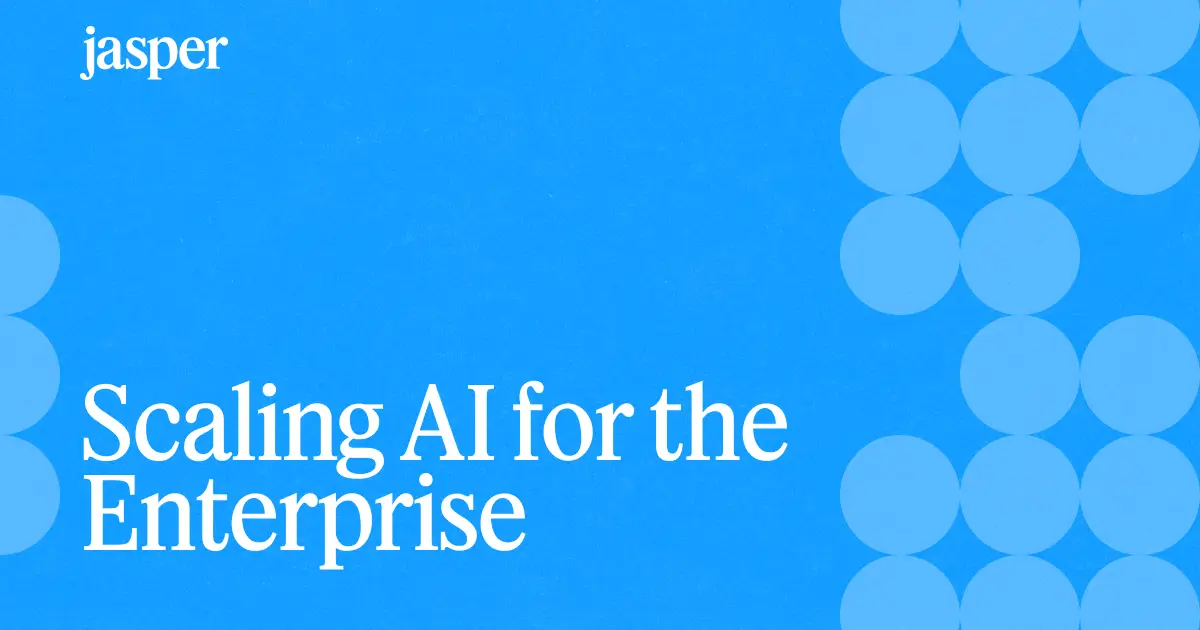How to Create a Content Calendar Your Team Actually Uses
Let’s break down the content calendar creation process into easy, actionable steps and look at best practices, industry examples, and more.
.png)
If you've ever felt like you're juggling a million ideas for your blog or social media, you're not alone. A solid content marketing calendar is the key to nailing your content and not losing your mind.
A content marketing calendar helps you plan your posts in advance, analyzes optimal times to reach your audience, and provides visibility into efforts by multiple stakeholders. The result? It keeps your posts consistent and your topics fresh and ensures you reach your audience when they're most likely to tune in.
As marketer Joe Pulizzi says, "Without a content calendar, you are navigating blind—and that's no way to set sail into the treacherous waters of digital content marketing."
Let’s break down the content calendar creation process into easy, actionable steps and look at best practices, industry examples, and more.
The importance of a content marketing calendar
Imagine trying to do a puzzle without a picture guide. That's what marketing without a content calendar is like. A content marketing calendar is a trusty roadmap for your brand's storytelling journey.
How? It keeps your content strategy on track, ensuring you’re consistently engaging your audience with timely, relevant material. It's also a game-changer for keeping your content production process organized and ensuring you don't miss out on key opportunities to connect.
Now, get this: according to the Content Marketing Institute, a whopping 63% of businesses don’t have a documented content strategy. That's a lot of missed potential. With a content calendar, however, you can be part of that savvy minority acting strategically.
Key elements to include in your content marketing calendar
When creating a content marketing calendar, it's important to ensure it’s detailed and organized to effectively plan, execute, and track your content strategy. Here are a few key elements to include.
1. Dates and Deadlines
- Publication date: The specific day you plan to publish each piece of content.
- Content deadline: The latest date by which the content needs to be completed or approved.
- Review dates: Times are scheduled to review the content’s progress or for final checks before publication.
2. Content Types
- Type of content: Video, blog post, infographic, podcast, social media post, newsletter, etc.
- Content themes or series: If a common theme or narrative connects a sequence of content pieces, spell it out.
3. Title & Description
- Summary: Proposed title or the main topic of the content piece and a brief overview or outline of the content’s main points or objectives.
4. Keywords/SEO Targets
- Primary and secondary keywords: Keywords to be used in the content for SEO optimization.
- Hashtags: Campaign or brand-owned hashtags for social media content.
5. Channels
- Platforms: Where the content will be shared or published (e.g., specific social media platforms, website, email).
- Audience engagement methods: Strategies used to interact with and involve the audience, such as polls, comments, live chats, or user-generated content initiatives.
Tools for building an effective content calendar
Here are six content marketing tools to help you with organization and planning.
1. Trello
A flexible tool that visually organizes tasks and schedules using boards, lists, and cards.

2. Asana
Great for team collaboration, Asana allows for task assignments, setting deadlines, and tracking progress.

3. Google Sheets
A versatile spreadsheet tool that can be customized to create detailed content calendars collaboratively.

4. CoSchedule
A marketing calendar that integrates content planning with social media scheduling, offering workflow automation.

5. Airtable
Combines the simplicity of spreadsheets with the complexity of databases, perfect for detailed content planning.

5. Hootsuite
Primarily a social media management tool, it also offers features for planning and scheduling content.

Step-by-step guide to building a content marketing calendar
Found your tool of choice and ready to start building? Here's a simple seven-step guide to creating an effective content marketing calendar.
- Define your goals: Determine what you want your content to achieve (e.g., increase brand awareness, boost web traffic, generate leads). Clear goals help guide your content creation and distribution strategy.
- Understand the audience: Identify your target audience and learn their needs, preferences, and content consumption habits. This insight will help you create relevant and engaging content.
- Audit existing content: Review your current content to identify gaps and opportunities. This will help you repurpose or update existing materials to align with your goals.
- Plan content types: Based on your goals and audience preferences, choose the content formats (e.g., blog posts, videos, infographics). Diversifying content formats can engage your audience more effectively.
- Set a publishing schedule: Create a timeline based on your resources and content goals. Consider key dates relevant to your audience or industry to align your content with.
- Assign tasks: Delegate responsibilities clearly within your team. Identify who’s responsible for creating, editing, approving, and publishing each piece of content.
- Monitor and adjust: Once your calendar is in action, track its performance against your goals. Use insights to adjust your content plan and strategy as needed.
Examples of effective content calendars and templates
Here are some examples of effective content calendar templates for different content formats.
1. Blog content calendar template

A blog editorial calendar ensures consistency, supports strategic content alignment, and improves team collaboration. Here’s how:
- Schedule blog posts around key industry events, holidays, and product launches
- A predetermined schedule prevents long posting gaps and maintains SEO rankings
- Seeing what content is coming up can help in teasing future posts to readers
- Writers can foresee busy periods (e.g., during a series or special coverage) and can plan their time or seek additional help.
2. Email Marketing Content Calendar Example and Template

Here are some of the benefits of an email marketing calendar:
- Maintain an optimal email frequency, preventing spamming your subscribers or neglecting them.
- Strategically plan for A/B testing of email campaigns.
- Helps in tracking the performance of your email campaigns over time.
3. Social Media Content Calendar Example and Template

Here are a few reasons to have a social media content calendar:
- Plan posts around key marketing dates, events, and campaigns
- Offers a buffer for editing and refining content
- Enables tracking of what content performs best, allowing for data-driven adjustments.
- Reduces the stress of daily content decisions
Tips for maintaining and updating your content calendar
Maintaining and updating a content calendar is crucial to staying organized and ensuring your content strategy aligns with your marketing goals. Here are some tips to help you effectively manage your content calendar:
1. Choose the right tools
- Use digital calendars or project management tools like Trello, Asana, or Google Calendar for real-time updates and team collaboration.
- Consider specialized tools like CoSchedule or ContentCal that are designed specifically for content planning and execution.
2. Align with marketing goals and audience insights
- Constantly revisit your marketing goals to ensure your content aligns. Update your calendar to reflect changes in strategy.
- For maximum engagement, use audience insights and analytics to refine content types, topics, and publication timing.
- Factor in costs for content creation, tools, paid promotions, freelancers or agencies.
3. Plan for flexibility
- Build in slots for spontaneous content or last-minute changes. Flexibility allows you to capitalize on trending topics or timely opportunities.
4. Collaborate and communicate
- Involve your team in the planning process. Regular meetings or shared access to the content calendar keeps everyone on the same page.
- Clearly assign roles and responsibilities for content creation, approval, and publishing.
5. Review past content
- Regularly audit your past content to identify pieces that can be updated, repurposed, or retired.
- Use historical performance data to guide your future content decisions.
6. Stay organized with deadlines and details
- Include deadlines, content formats, distribution channels, responsible team members, and any other relevant details.
- Use tags or flags for content status (planning, in progress, review, published) to track progress at a glance.
7. Keep optimizing your strategy
- Stay informed about content marketing trends and best practices. It isn’t enough to stop at developing a content strategy. Seek feedback from your audience and team to continuously improve and optimize it.
Tips for getting your team to adopt the content calendar
1. Explain the benefits
Understanding the "why" behind the content calendar can motivate your team to use it. Explain how a content calendar benefits the team and the organization: better planning and coordination, avoiding content bottlenecks, ensuring a consistent content flow, and improving alignment with business goals.
2. Involve the team in the creation process
Get input from members using the content calendar. Hear their opinions on the format, items to be included, and how it will be updated. A tool tailored to the team's needs and preferences will likely be used.
3. Provide training and resources
Don't assume everyone knows how to use the content calendar. Training sessions can cover how to add or modify content, and interpret any indicators or tags used. Be available to answer questions or provide additional support as needed.
4. Integrate the calendar into daily workflows
Make the content calendar a central part of your team's routine. This could mean starting team meetings with a review of the calendar or integrating it with other tools the team uses regularly through apps or plugins.
5. Celebrate successes and solicit feedback
Met a challenging deadline? Successfully launched a campaign? Mention how the calendar was instrumental in that achievement. Also, be open to making adjustments. Recognizing successes and being responsive to feedback shows your team that their input is valued and that the calendar is a dynamic tool to support everyone's success.
Nailing Your Content Marketing Calendar
Whether you're a seasoned marketer or just starting out, a calendar keeps your content game strong and stress-free.
In recent times, the integration of AI tools into content calendar platforms has revolutionized how marketers approach content planning. These tools can analyze vast amounts of data to predict content trends, suggest optimal posting times, and even recommend content themes that are likely to engage your audience.
According to a report by Statista, the global market for AI software, which includes AI-powered content tools, is expected to see a remarkable Compound Annual Growth Rate (CAGR) of 54% from 2020 to 2025.
By leveraging the power of AI tools within content calendars, marketers and business owners can ensure their content is consistent, well-planned, and deeply aligned with their audience's interests and behaviors.
A content calendar is no longer just an option—it's a necessity for success. Read our Content Marketer's Guide to Jasper to learn how to use AI in calendar creation and all of your content processes.
More of the latest & greatest

Scaling AI for the Enterprise: How Marketing Leaders Drive Impact
High-performing marketing teams are scaling AI with structure and strategy. Learn how CMOs can lead the way to drive organization-wide impact.
July 1, 2025
|
Megan Dubin

Reflections from Cannes: Why Brand and People Still Matter Most in the Era of AI
At Cannes Lions 2025, one truth stood out: brand, trust, and authenticity are making a powerful comeback.
June 24, 2025
|
Loreal Lynch

Interactive Tool: Benchmark Your AI in Marketing Strategy
Discover your marketing team's AI maturity. Benchmark your strategy, compare with peers, and uncover gaps with an interactive tool.
June 17, 2025
|
Megan Dubin







